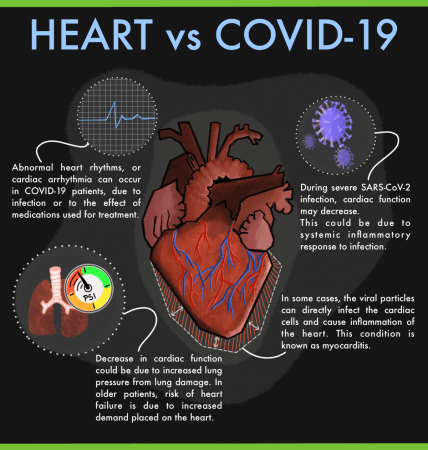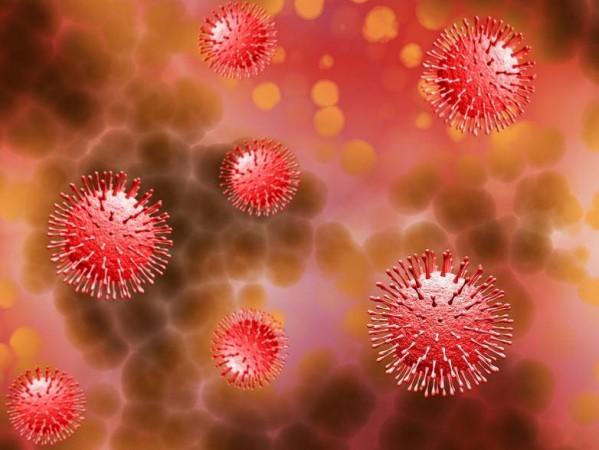The damage that COVID-19 causes to different organs of the body have been found to be varied and far-reaching. Along with the lungs—the SARS-CoV-2 coronavirus' primary target—other organs such as the heart are also known to be harmed. However, offering some good news, a new study has suggested that individuals who contracted mild forms of the infection may not suffer from any long-term heart damage.
According to the study led by researchers from the University College London (UCL), mild COVID-19 infection is not likely to result in persisting damage to the functions or the structure of the heart. The research (which was conducted among frontline health workers in the UK) is said to be the most detailed and largest to date to examine the long-term impact on the heart by mild coronavirus infection.

"These findings one year on from the start of the pandemic are welcome reassurance to the hundreds of thousands of people who have experienced Covid-19 with mild or no symptoms," said Dr. Sonya Babu-Narayan, Associate Medical Director at the British Heart Foundation (which funded the study along with Barts Charity ), in a statement.
Heart Not Spared from Damage
The novel coronavirus can harm the heart in numerous ways. For example, in patients with severe COVID-19, an erratic immune response known as a 'cytokine storm' can cause damage to several organs including the heart. Also, the notorious pathogen can invade the heart directly and lead to the inflammation of the heart muscle—Myocarditis—in individuals with advanced COVID-19. Indirect harm may also be caused to the heart when the balance between oxygen supply and demand is disrupted due to the viral infection.
Inflammation associated with the illness triggers the body's blood clotting mechanism. These clots in turn raise the risks of heart attacks. In hospitalized patients with COVID-19, heart injury can be gauged by the measurement of increased levels of the enzyme troponin (a protein found in heart muscles) in the bloodstream. Additionally, existing cardiovascular diseases (CVD) can compound the chances of heart complications and damage caused by SARS-CoV-2.

Recent studies have also shown that MRI scans of patients who recovered from severe COVID-19 revealed that asymptomatic heart inflammation in up to nearly three-quarters of patients. However, long-term effects on the heart due to mild COVID-19 are less known. This is where the current study comes into play.
Comparing Heart Health
For the study, a total of 149 healthcare workers [range 18 to 63 years (mean age 37 years), 58 percent women] were recruited from the COVIDsortium, a 3-hospital prospective study of 731 healthcare workers. Participants of the COVIDsortium had been subjected to the collection of blood and saliva samples, and nasal swabs, for 16 weeks.
After six months, the authors evaluated the heart functions and structure of 74 healthcare workers who had recovered from mild COVID-19. This was done through the analysis of MRI heart scans, and by comparing them with 75 healthy healthcare workers (age-, sex-, and ethnicity-matched control subjects) who had not contracted the disease at all.
No Difference in Heart Conditions

The left ventricle is a vital chamber of the heart that is responsible for pumping blood throughout the body. Interestingly, the authors found no variations in the amount of muscle or the size of the left ventricle, or it's capacity to pump blood out of the heart. The amount of scarring and inflammation was also found to be the same between the two groups.
When the authors compared the elasticity of the aorta in both the groups—the main artery responsible for distributing oxygenated blood to the rest of the body—it was the same. Importantly, when the blood samples of the participants with mild COVID-19 infection were analyzed, no differences were found in the levels of troponin and NT-proBNP—two markers of heart damage—six months after infection.
Though slight abnormalities were identified in the MRI scans, the prevalence was not more often than those found in individuals who never had the illness. The authors stated that these changes could have resulted from reasons other than COVID-19 and may not cause any notable differences in their health.

"Disentangling the impact COVID-19 has on the heart has been a challenge. But we're now at the stage of the pandemic where we can really start to get a grip on the longer-term implications COVID-19 has on the health of our heart and blood vessels," noted Dr. Thomas Treibel from UCL Institute of Cardiovascular Science and Barts Health NHS Trust.
Focus on Most Affected Groups
Backed by the findings, the associated scientists and cardiologists submit that the heart screenings of individuals who had mild COVID-19 offer little or no benefit. Therefore, the focus of research must be on those who have battled severe COVID-19, suffering from ongoing symptoms or high-risk groups, suggest the researchers.
Emphasized on the suggestion, Dr. Treibel, said, "We now need to focus our attention on the long-term impact the virus has in those who've been hit hardest by the disease." Dr. Babu-Narayan concluded that though further work is required, at least for now, the good news is that there is no link between heart damage and mild COVID-19 infection.
















